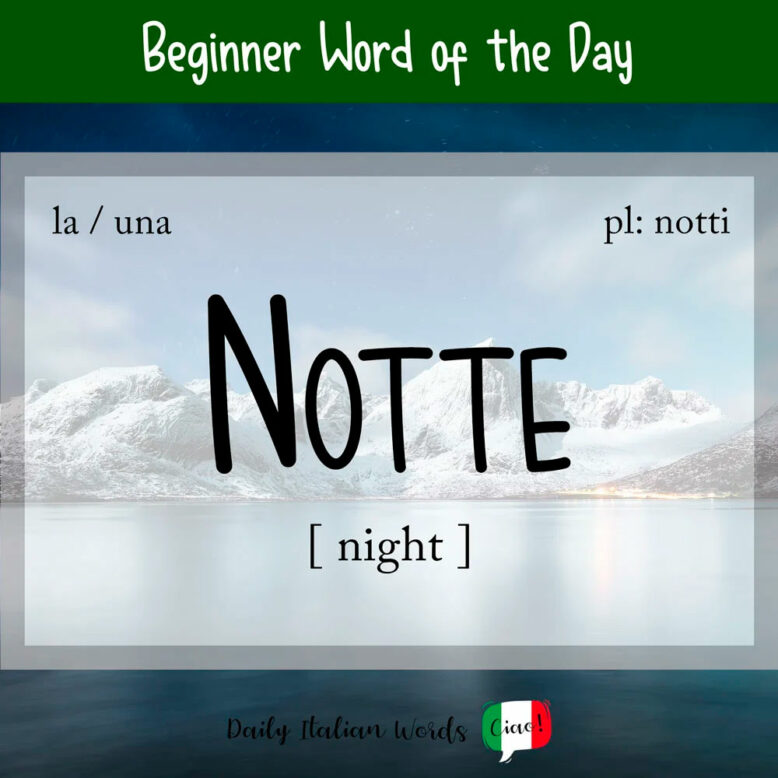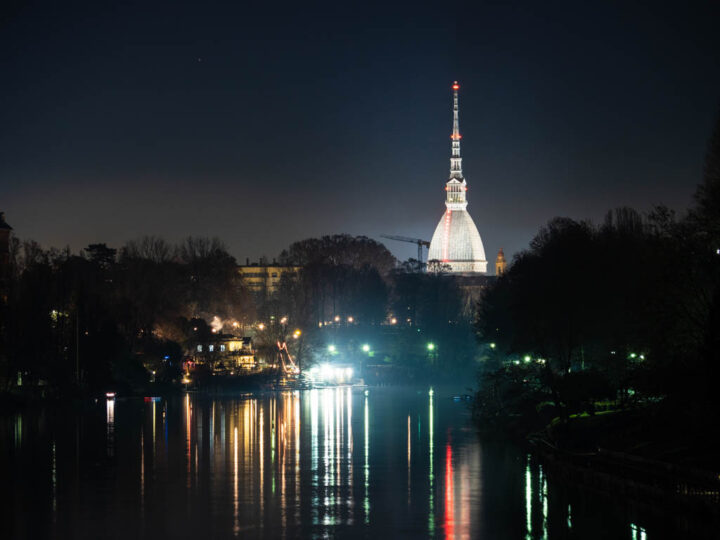The word for night in Italian is notte (feminine, plural: notti).

Even if you’ve only been studying Italian for a few short weeks, you will certainly have encountered the greeting buona notte which means good night.
Buona notte Alice, e grazie ancora di tutto!
Good night, Alice, and thanks again for everything!
Occasionally, Italians use the word sera (evening) instead of notte to describe what English people would always call night. For example, it isn’t uncommon for Italians to say ogni sera / tutte le sere (every evening) in cases where every night would be more appropriate in English. This is especially true if the activity in question starts in the evening and finishes at night.
Quando ero in Portogallo, ogni sera ero solito tornare a casa molto tardi.
When I was in Portugal, I used to get home very late every night.
When talking about the night, the following expressions can come in handy:
- di notte = at night
- durante la notte = during the night
- per tutta la notte = all through the night
- a notte fonda = late at night

One of my favourite expressions in Italian is notte in bianco (lit: white night) meaning a sleepless night. Its origin dates back to the Middle Ages when aspiring knights, on the night before their investiture ceremony, would dress in white as a sign of purity and pray inside a chapel until dawn.
Ho passato una notte in bianco perché il bambino non ha smesso di piangere.
I had a sleepless night because the baby wouldn’t stop crying.
One way Italians say that it is getting dark outside is si sta facendo notte (lit: it is making nighttime). Of course you can also say sta diventando buio (lit: it’s becoming dark) or si sta facendo buio (lit: it is making dark).
When night is used as an adjective, notturno (nocturnal) is generally the more appropriate translation. For example, a night club is known as a locale notturno whereas the night sky would be il cielo notturno.
Idioms featuring ‘notte’
La notte porta consiglio
Literal translation: the night brings advice
English meaning: to sleep on it
Peggio che andar di notte
Literal translation: worse than going at night
English meaning: worse than ever
La notte dei tempi
Literal translation: the night of times
English meaning: the dawn of time
Superare la notte
Literal translation: to overcome the night
English meaning: to make it through the night
Heather Broster is a graduate with honours in linguistics from the University of Western Ontario. She is an aspiring polyglot, proficient in English and Italian, as well as Japanese, Welsh, and French to varying degrees of fluency. Originally from Toronto, Heather has resided in various countries, notably Italy for a period of six years. Her primary focus lies in the fields of language acquisition, education, and bilingual instruction.


